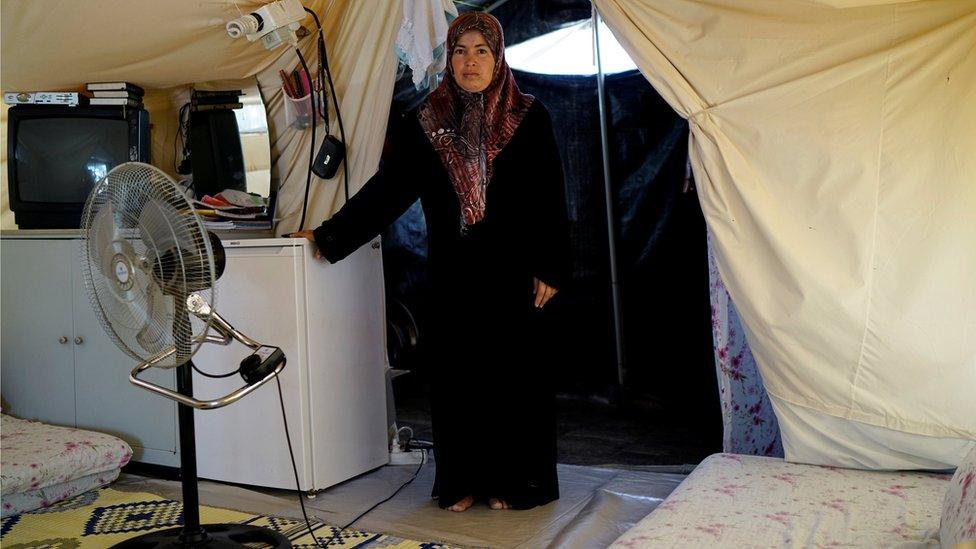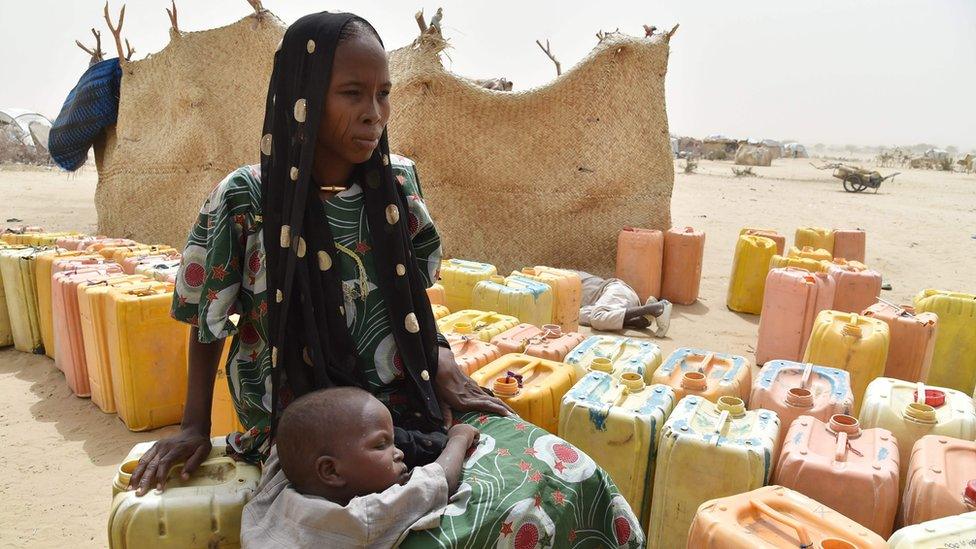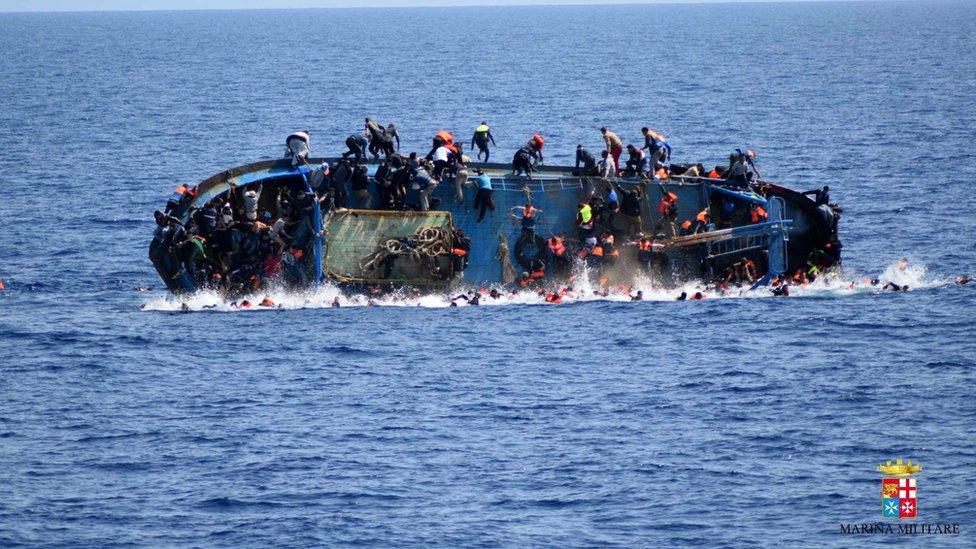Refugees at highest ever level, reaching 65m, says UN
- Published
Syrian migrants continue to look for safe passage into Europe
The number of people displaced by conflict is at the highest level ever recorded, the UN refugee agency says.
It estimates that 65.3m people were either refugees, asylum seekers or internally displaced at the end of 2015, an increase of 5m in a year.
This represents one in every 113 people on the planet, the UN agency says.
Meanwhile, the UN refugee chief says a worrying "climate of xenophobia" has taken hold in Europe as it struggles to cope with the migrant crisis.
The influx of people, the biggest since World War Two, has led to greater support for far-right groups and controversial anti-immigration policies.

Turkey hosts more refugees than any other country in the world

This woman and her child have fled Boko Haram violence in Niger and are living in a refugee camp
In its annual report, external marking World Refugee Day, the UN said it was the first time the number of refugees worldwide had passed the 60m mark.
Over half of the total comes from just three countries: Syria, Afghanistan and Somalia.
Despite the huge focus on Europe's migrant crisis, the UN said 86% of the world's refugees were being sheltered in low and middle income countries.
Turkey is the biggest host country for refugees worldwide, with 2.5m people, followed by Pakistan and Lebanon.
More than 1,011,700 migrants arrived in Europe by sea last year, according to the International Organisation for Migration (IOM), external, although other agencies put that number much higher.
Some 35,000 arrived by land, the IOM said.
The preferred destinations for most of them were richer northern countries like Germany and Sweden.
This is reflected in the UN's figures for new asylum applications in 2015, which show that Germany was the largest single recipient, followed by the United States and Sweden.
Most Syrian refugees in Turkey are covered by the Turkish government's temporary protection scheme so do not count as asylum claimants.
The charity is helping refugees to grow their own plants
'Climate of xenophobia'
The European migration crisis has caused significant political rifts within the EU, with some states inside the border-free Schengen area putting up fences and re-imposing frontier controls.
The European bloc reached an agreement with Turkey in an attempt to limit the mass movement of people into the EU, a deal that has been heavily criticised by human rights groups.

Thousands of people continue to make dangerous journeys in trying to reach Europe
In separate remarks, the UN refugee chief said European leaders needed to do more to coordinate policies and to combat negative stereotypes about refugees.
"Those who do the opposite, who stir up public opinion against refugees and migrants, have a responsibility in creating a climate of xenophobia that is very worrying in today's Europe," Filippo Grandi told AFP news agency.
He said it was unfortunate that some decisions taken by the EU to handle the crisis "were not implemented", calling it "a missed opportunity".


A note on terminology: The BBC uses the term migrant to refer to all people on the move who have yet to complete the legal process of claiming asylum. This group includes people fleeing war-torn countries such as Syria, who are likely to be granted refugee status, as well as people who are seeking jobs and better lives, who governments are likely to rule are economic migrants.